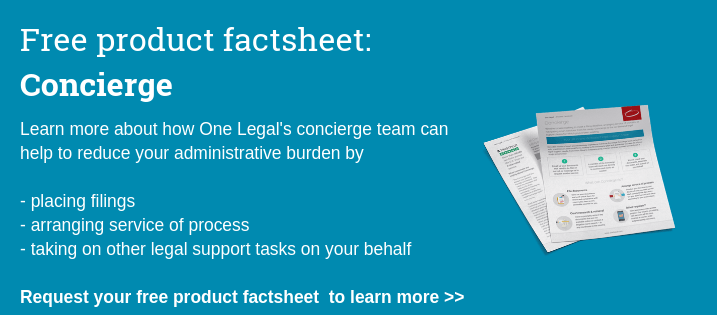There are some parts of a paralegal’s job that allow you to showcase your strengths, education, and value, and others might be better left outsourced. With increased costs and stiff competition among law firms, legal process outsourcing (LPO) is increasingly becoming the norm.
Why outsource?
The overall goal of outsourcing is to permit a law firm to allocate its resources most efficiently. Delegating tasks that don’t require a higher level of expertise allows you to perform the substantive legal work. This might include scanning, data entry, copying, and filing. If done properly, outsourcing can result in both lower costs for the client and increased profits for the firm.
Although domestic outsourcing can be cost-effective, legal outsourcing overseas is also a booming business. In fact, the entire LPO market is projected to be worth $8.6 billion by 2020. So how can a firm best determine which duties are better served when performed in-house, and which can and should be outsourced, and to whom?
Have a firm goal in mind
Before deciding whether to outsource your legal work within the U.S. or overseas, you should consider your ultimate goals.
Do you want to outsource to save money? Do you want to make room to take on bigger cases? Or is this a temporary move to complete a project that requires more manpower than you have in-house?
Having a clear objective of what you want to accomplish through outsourcing will help you choose the right resource to help your firm meet its needs most efficiently.
Decide on work to outsource
When choosing work to outsource, focus on selecting duties that do not require your direct involvement but are crucial to backup support of your cases. Some commonly outsourced legal work includes:
Document review
…including deposition summaries and the coding of documents. Aim to outsource this work to a document review service that offers competitive rates without compromising on the quality of output.
Contract management
…which involves following the status of contracts from drafting, signing, to performance, a very intricate process. Outsourcing contract management can ensure that your contracts are monitored throughout their lifecycle, and no details are missed.
Legal research
…which can be extremely painstaking and time-consuming. By hiring an LPO to perform this work can free up your firm’s lawyers and paralegals for other critical needs, such as client servicing.
Court filing
…particularly useful for augmenting legal support staff availability or scaling during the busy seasons of a law firm. Work with court filing experts to eFile with the court and arrange service of process when extra help is needed.
Find a provider to match your needs
Once you have identified the processes you want to outsource, you’ll need to look for and select a provider who matches your requirements. You should focus on the professionalism and experience of the staff and ask for testimonials from other clients to verify their proficiency. Proper governance in an outsourcing relationship demands:
- Smooth decision making and issue resolution
- Effective communication (even across great distances, time zones, and cultures)
- A process to measure and monitor the correct indicators
- Assurance that the provider will be able to function as an extension of your team
Try to build quality assurance and improvement in turnaround times and efficiency into the engagement.
Address privacy concerns
While litigation deals with sensitive information that is often a matter of public record, other areas of law might treat it quite differently. Any outsourcing firm you employ must be familiar with U.S. privacy standards and be required to sign proper disclosure agreements whenever necessary. All private information must be handled with the utmost concern regarding any potential risks to client privacy.
After you determine which tasks you want to outsource and to whom, you’ll also need to inform your clients. Since they are paying for your firm’s services, not the services of an unknown LPO provider on the other side of the country or even the world, clients should be made aware of any work on their cases that is being outsourced.
Besides obtaining client consent, you’ll also need to “reasonably believe that the other lawyer’s services will contribute to the competent and ethical representation of the client,” according to guidelines from the American Bar Association (ABA).
Do you know of other considerations that should be made when thinking about outsourcing legal work? Tell us about them in the comments!









